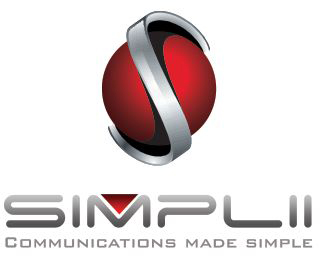Lead Scoring

What is Zoho CRM lead scoring and why is it important?
Imagine getting a marketing list filled with a whole bunch of contacts and you do not know where to start. You don’t know a single thing about Lead Scoring. Who do you contact first? Do you send the exact same message to everyone on the list?
The truth is: there’s more to the list than just names.
How exactly do you qualify a contact as a lead, and a lead as a prospect? – a question that can save your sales career or business. Before engaging leads, it is important to determine whether they are sales-ready or not. Reaching out to your customers is not a “one-size-fits-all” system. Hard-selling to people who do not even know your brand or are not even interested with what you are offering would lead to decreased productivity, lower conversion rates, and in the long run, decreased ROI.
Lead Scoring greatly helps with this dilemma. It is a powerful method of handling and analyzing your leads, helping you qualify them and determine which stage of the sales funnel they are in. It is about giving scores to your leads according to valuable data you have on them:
- Their Company Profile
- How they respond to your marketing campaign
- How long they stay on your website
- How many times they’ve checked out your social media profile
- How many times they clicked on your ads
- Other metrics that are specific to YOUR company
Through these metrics, you will be able to gain clearer insights before predicting who might convert to actual customers.
How does Zoho CRM lead scoring work?
Choose a criteria for your lead scoring:
-
Demographics
As a business, you have an effective persona for your target audience. Do your ideal buyers hold senior-level executive roles? Do they belong to some sector of your choosing? Are they typically entrepreneurs or members of small or large companies? Establish scores based on the various criteria you view your leads by, and ensure your sales team doesn’t waste their efforts on clients who don’t convert. These metrics are not a one-size-fits-all. They should be ‘What criteria is specific to MY company or MY products?’.
-
Behavior or Response
By tracking the behaviors of people interested in your product or services, you can determine early-stage buying signals for future use. Take note of the positive behaviors that have a higher lead score, and make sure your sales reps focus on them. Zoho CRM has a feature that tracks multiple customer behaviors across multiple touch points. Opens, Clicks, Forwards… you can have scores based on any of these behaviors.
Email marketing is a powerful tool that helps businesses establish a relationship with their audience. This could be in the form of a periodic newsletter, drip campaign, personalized offers or coupons. Evaluate how your customers engage with these email campaigns and use these metrics to determine their level of interest in a purchase.
Know your leads’ bottle neck and pain points and be able to pinpoint their preferences. Determine the authority of the lead. Do they hold the team’s budget? Score their responses and assess how close they are to making a purchase.
Your potential customers are everywhere. They’re on social media perhaps particularly reviewing your products. They are googling you, searching through your website, grabbing a copy of your downloadable, engaging in your community or social media posts, or clicking on your ads. Each interaction and connection can be an opportunity to establish relationships. Rate a positive score to your leads as they engage with you through your social channels.
Impact of Zoho CRM lead scoring to my business
According to Marketing Sherpa, only 27% of your leads are marketing-ready. This is where lead scoring plays its part. This technique allows you to determine which leads deserve to receive a greater advertising and marketing focus, and who you ought to nurture by different scores. It can be utilized by even a small or medium-sized business because of its capacity to magnify your business in different ways.
Scores help marketers identify the most receptive leads.
Lead scoring can help marketers choose the characteristics of each lead and find which leads should be sent to sales, and which will require more targeted marketing.
Lead scoring increases your revenue.
Companies that practice this technique benefit from greater collaboration between sales, marketing, and customer service, which yields a higher percentage of revenue.
Scoring your leads helps with the marketing campaign.
Scoring leads will help you determine the stages of sales readiness and create new follow-up types for each. This will speed up the process of qualifying leads.
Lead quality is directly proportional to sales productivity.
Higher quality leads bring about an increase in sales productivity. Lead scoring helps in making sure this happens.
Conclusion
A Lead Scoring system can help you draw in your business’s target demographic, as it automates how you draw in leads. Your marketing team can use this particular automation strategy to cultivate leads with prospective purchasing power and channel them to conversions. This results in improved sales productivity and in turn, an increase in the overall revenue of your company while diminishing wasted effort.
If you are curious to know more about lead scoring, check out this video where Ki Consultants and Caldere Associates collaborate to explain further and share their own experience on lead scoring.

